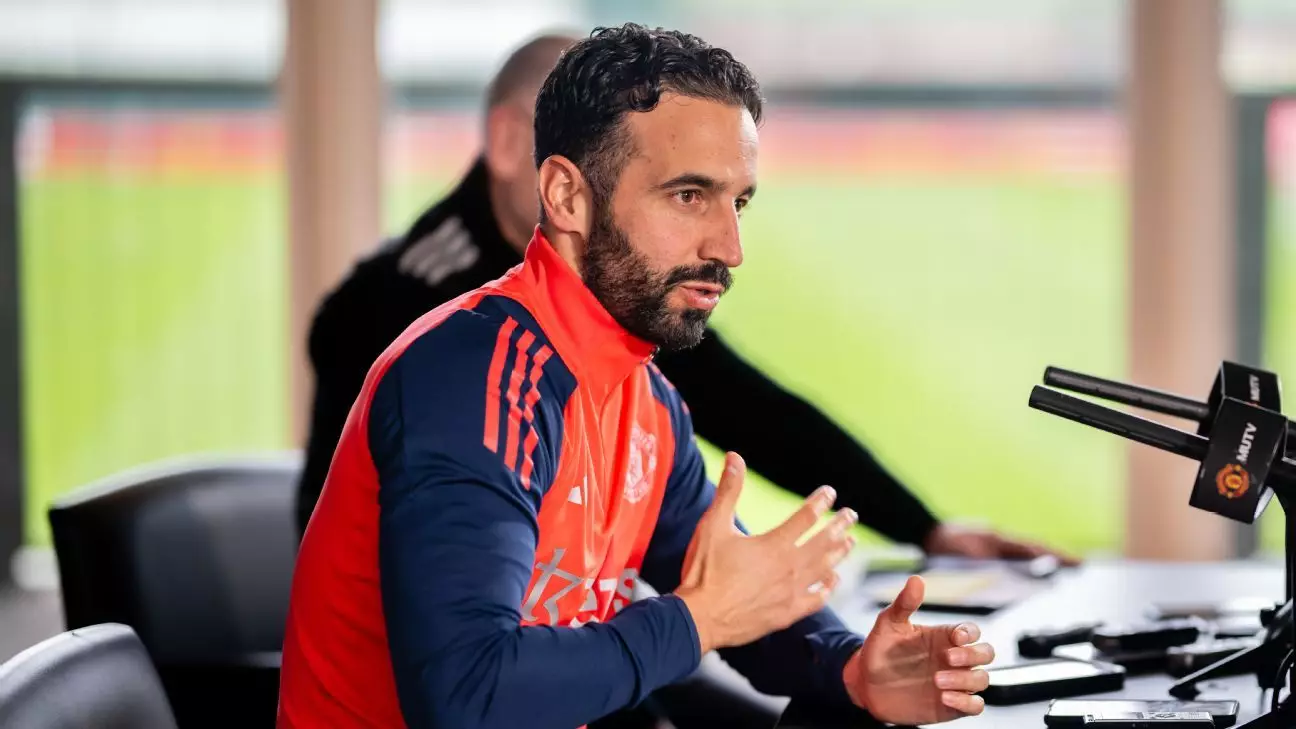The appointment of Rúben Amorim as the head coach at Manchester United marks a significant transition in the club’s hierarchy. While he takes on a crucial role in shaping the team’s future, Amorim faces a structured environment that emphasizes collaborative recruitment strategies led by sporting director Dan Ashworth and technical director Jason Wilcox. This development raises questions about the extent of his authority in matters of player transfers, a topic that has sparked considerable debate among fans and analysts alike.
Amorim’s assertion that he expects to have a vital say in transfer decisions, despite the limitations placed on him, reflects a common challenge in modern football management. The dichotomy between collaboration and singular decision-making authority can influence not just team performances but also the overall morale of the players and the club’s fanbase. By emphasizing his need for a “strong position” in player selection, Amorim indicates an understanding of his accountability as head coach. The results on the pitch fall squarely within his purview, and this recognition of responsibility is crucial for his success at the club.
Central to Amorim’s strategy is the belief that successful player recruitment demands a refined process that prioritizes data and the profiles of potential signings. His approach echoes a broader trend in football where analytical methodologies have become instrumental in identifying talent. By advocating for a system of recruitment that includes his input on both incoming and outgoing players, Amorim acknowledges that effective collaboration with Ashworth and Wilcox is essential.
However, genuine collaboration requires an alignment of visions and strategies, which can be hampered if there is a perceived power imbalance. The clearly delineated roles within the club could foster some friction, particularly when a head coach has to negotiate their preferences against that of a sporting director. Amorim’s insistence that the “final word should be the manager” reflects his desire to create an environment in which he feels empowered to make key decisions that align with his coaching philosophy while still leveraging the analytical strengths of his colleagues.
Facing the reality of a challenging season start, Amorim expressed belief in the potential of the players he has inherited. He acknowledged, however, the damaging effects of poor performances on player morale. The transitional phase for Manchester United post-Erik ten Hag has posed its challenges, including a drop in confidence among the existing squad. Amorim’s understanding of the psychological aspects of management, particularly in how self-doubt can manifest among players, is notable.
He rightly identifies that “when you don’t win games, you start to be suspicious of the way of playing,” showcasing his acute awareness of the mental barriers that can hinder a team’s performance. His call for collective resilience and the commitment to rebuild confidence reflects a coaching philosophy rooted in psychological support as much as tactical refinement. To revive team spirit, Amorim must not only remind players of their capabilities but also devise strategies to rekindle their belief in the collective mission.
As Amorim prepares for his first competitive fixture against Ipswich Town, the focus will undoubtedly be on amalgamating his vision with the existing squad’s dynamics. This initial encounter will serve as both a trial and a foundational moment for his tenure at Manchester United. It represents the beginning of his journey to restore the team’s competitive edge and instill a renewed sense of purpose.
To navigate the complexities of his role, Amorim must cultivate a culture of trust and open communication, both within his coaching staff and with the players. Balancing authority and communal input in decision-making will be crucial, particularly as the season progresses. The foundation of a successful future depends significantly on how well he integrates his ideas within the framework established by the club’s sport executives while simultaneously inspiring the players to perform at their best.
While Rúben Amorim’s debut as head coach carries inherent pressures, it also presents a unique opportunity for transformation. By fostering an environment of collaboration, decisiveness, and psychological support, he can lead Manchester United through this challenging phase toward a more promising horizon.
